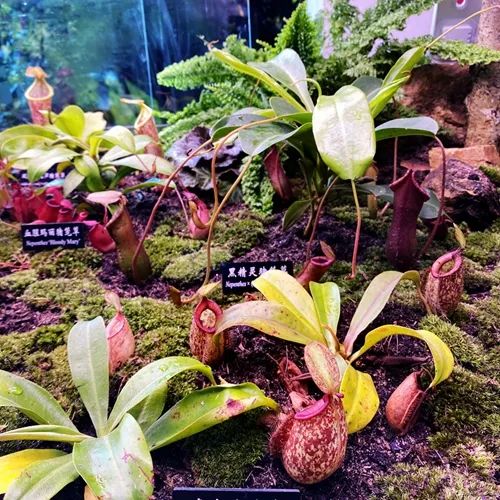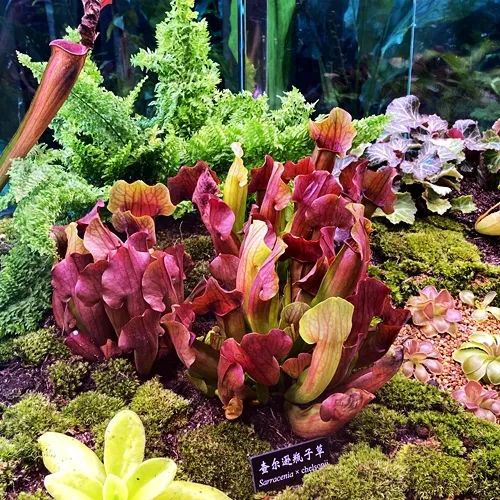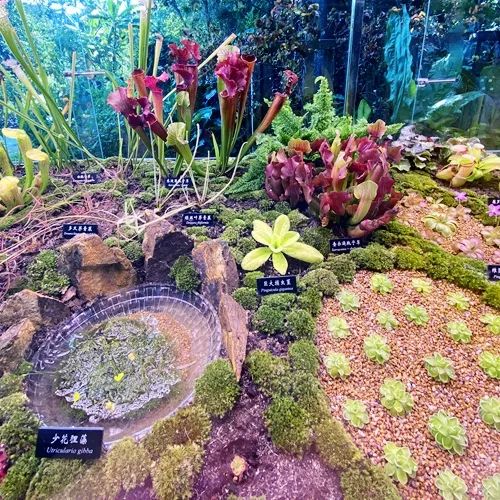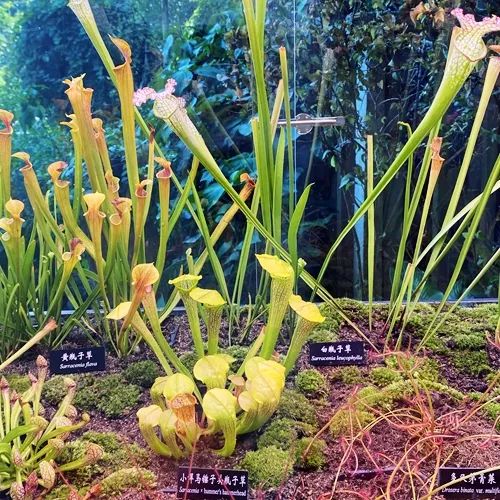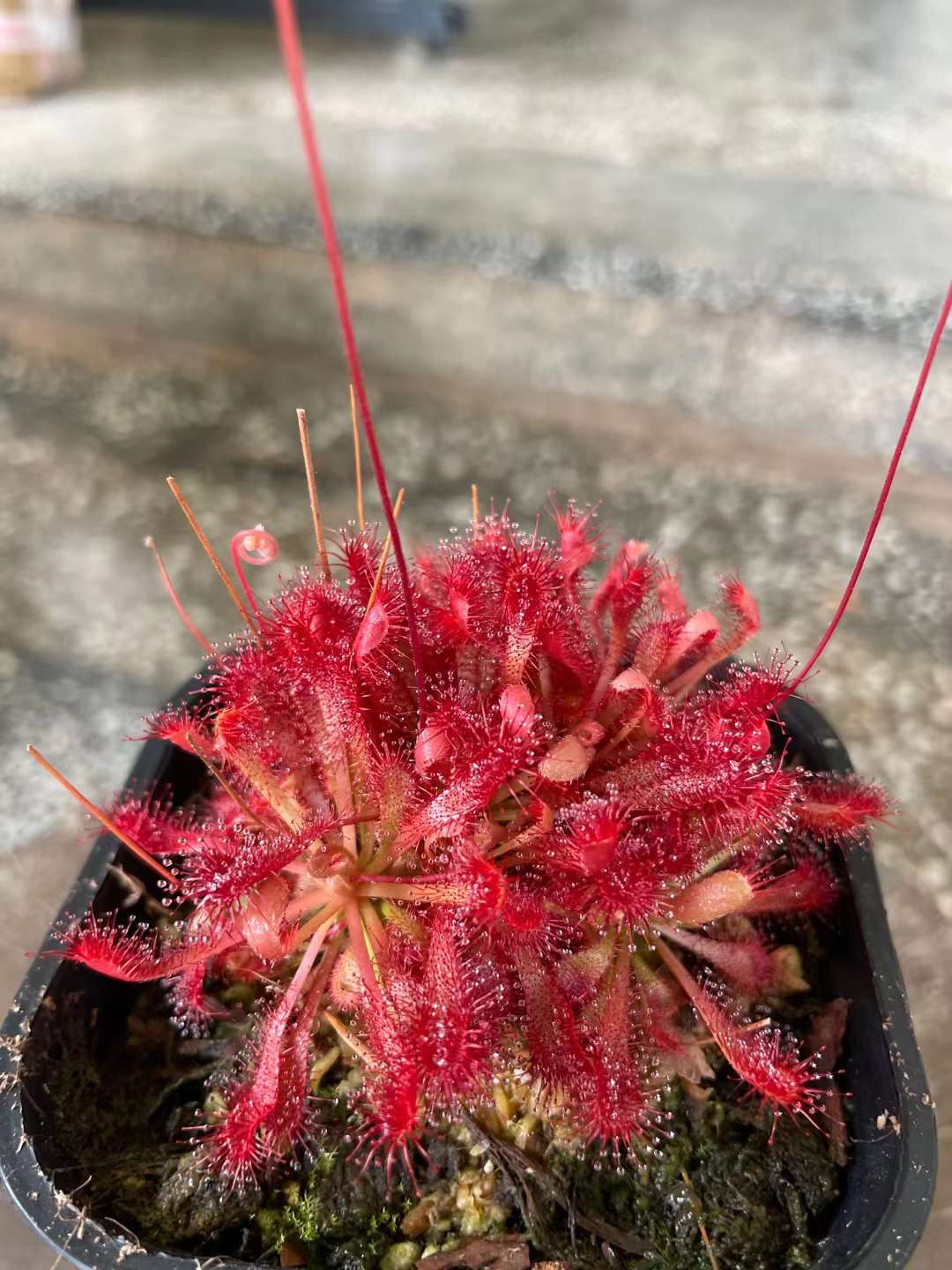Xishuangbanna Tropical Botanical Garden (XTBG) is holding its first carnivorous exhibition to celebrate the National Day Holiday. The carnivorous plants show will last from October 1-30.
There are 630 different kinds of carnivorous plants around the world. Some carnivorous plants are water plants (they live in the water) and some live in the soil like most other plants do.
Xishuangbanna is not the main distribution area for this interesting and amazing plant group. XTBG has made efforts to collect and preserve many carnivorous plants. To greet the National Day, XTBG makes these amazing plants on display to let people have a better understanding.
Carnivorous plants are predatory flowering plants that kill animals in order to derive nutrition from their bodies. Carnivorous plants pull off this trick using specialized leaves that act as traps. Many traps lure prey with bright colors, extra-floral nectaries, guide hairs, and/or leaf extensions. Once caught and killed, the prey is digested by the plant and/or partner organisms. The plant then absorbs the nutrients made available from the corpse. Most carnivorous plants will grow without consuming prey but they grow much faster and reproduce much better with nutrients derived from their prey.
There are actually five different ways a carnivorous plant can catch its prey (food), they are pitfall plants, flypaper traps, snap traps, bladder traps, and lobster traps.
Come to the Distinctive Plant Collection of XTBG to see how insects or other animals are trapped and eaten by plants. That will be very interesting!
